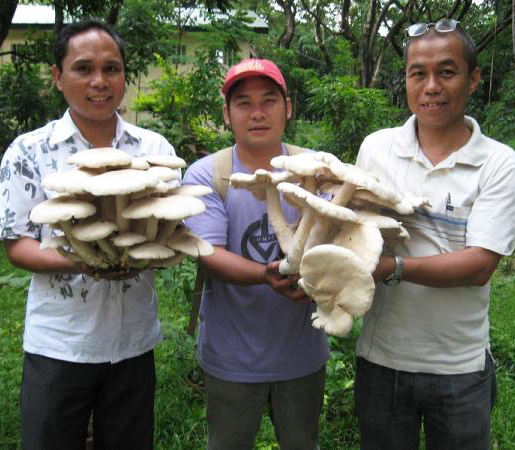 Dr. Reyes received his PhD in Forest Science at Tokyo University of Agriculture in Japan and after conducting his post-doctoral research fellowships at Michigan State University, USA; Takasaki University of Health and Welfare, Japan; and the German Research Center for Biotechnology (GBF) and the Technical University of Braunschweig in Germany, he focused on harnessing the economic potential of Philippine wild edible mushrooms, particularly the underutilized mushroom genetic resources. This scientific intervention made Philippine mushrooms known to the international scientific community. Dr. Reyes conceptualized and advanced an innovative approach for mushroom cultivation via mushroom pharming in the Philippines, which includes cultivating medicinal mushrooms for nutrient and climate change-sensitive agriculture. He also holds the intellectual property rights on the production of mushroom-based beta glucan using coconut water as a culture medium. Because of his efforts, the government, through the Philippine Council for Health Research and Development of the Department of Science and Technology (DOST-PCHRD), awarded CLSU as a Tuklas Lunas Development Center to focus its research on mushroom drug discovery.
Dr. Reyes received his PhD in Forest Science at Tokyo University of Agriculture in Japan and after conducting his post-doctoral research fellowships at Michigan State University, USA; Takasaki University of Health and Welfare, Japan; and the German Research Center for Biotechnology (GBF) and the Technical University of Braunschweig in Germany, he focused on harnessing the economic potential of Philippine wild edible mushrooms, particularly the underutilized mushroom genetic resources. This scientific intervention made Philippine mushrooms known to the international scientific community. Dr. Reyes conceptualized and advanced an innovative approach for mushroom cultivation via mushroom pharming in the Philippines, which includes cultivating medicinal mushrooms for nutrient and climate change-sensitive agriculture. He also holds the intellectual property rights on the production of mushroom-based beta glucan using coconut water as a culture medium. Because of his efforts, the government, through the Philippine Council for Health Research and Development of the Department of Science and Technology (DOST-PCHRD), awarded CLSU as a Tuklas Lunas Development Center to focus its research on mushroom drug discovery.
As part of his SEARCA Regional Professorial Chair grant, Dr. Reyes introduced wild edible mushrooms through a public lecture on 6 March 2023 at his home institution. Discussing "Recent advances on the domestication and mykopharming of wild edible mushrooms in the Philippines for the bio-functional food industry," Dr. Reyes shared about the zero rice waste technology, which utilizes rice straw as the main substrate for cultivating edible mushrooms. Farmers commonly burn rice straws, and Dr. Reyes' study proposed a solution to this harmful practice. He talked about Volvariella volvacea, a popular mushroom in the Philippines that grows well in rice straw, banana leaves, water lily, and other cellulosic farm residues.